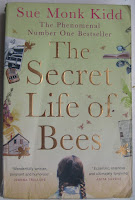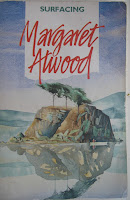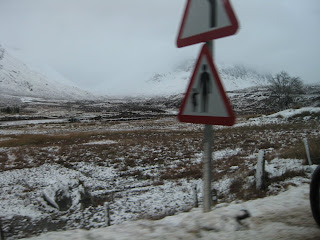(Not a list of favourite books but some books that have been pivotal to my reading or illustrate what books can.)
Every story has a bad guy. In my case it was my dad, who taught English literature at university level (although as I discovered some years later, he himself didn’t have an English degree). He forbade us Enid Blyton books, which were being enjoyed by everyone else, not on the grounds of their dodgy class perspective, racism or sexism, but because they were badly written. He would give me a book, Little Women by Louisa Alcott, for instance, with instructions to read it and come back with comments. Well. No pressure there then. No fun either. Alongside this were school teachers who gave me dry Victorian tomes (some of which were actually very good) and told us to read one chapter, just one, for next week. This is counterintuitive. If a book is good you’ll be lost in it and find yourself unable to stop reading all the other chapters too. The exercise seemed pointless and not to be trusted. Again, the job was to have intelligent things to say, but not from the more sensible position of having read the whole thing. The consequences of not having intelligent things to say were generally, both at home and at school, humiliation.
After my dad died I found out he was actually a high achieving Classics scholar who had been thrown out of the Classics department for some unknown misdemeanour. He therefore taught and read literature instead - because he had to. He managed to pass the reading-because-I-had-to thing down to me.
But I knew other people read because they loved reading; simple logic told me this. So, in my mid-teens, I went to a public library, not a school one which had books with ulterior purposes, but a free public one where people went for pleasure and bus timetables.
No-one knew I’d gone to the library and no-one except the librarian knew what I’d done there. There was no judge (my dad) and no jury (the school). I could read what I liked and take out several books at once. If I didn’t like them I could take them back the next day and try another few. This was a very important development: I was learning independent judgement.
I was also learning how to read critically. Studies have shown that children who read early do well later on. This is probably because they learn independent judgment at a formative stage through reading and questioning books.
One book I remember from that time taught me I could travel the world through reading. It was When Rain Clouds Gather by Bessie Head. To my knowledge, I’ve never met anyone else who’s read it. Set in Botswana, the book opened up a whole continent to me, a new world with different challenges and values from my own. In that sense, it was indeed like a sudden shower after rain clouds have gathered.
In this way, I also discovered the short stories of Edgar Allen Poe and Saki. For me these were like the grown up version of Grimm’s Fairy Tales and those of Hans Christian Andersen which I’d enjoyed as a child. My mother was much kinder in her encouragement of my reading. Other gems from her I still cherish are the Flower Fairy books by Cicely Mary Barker with her beautiful delicate paintings.
My secret reading vice gathered pace. I discovered Kurt Vonnegut, laughed out loud in public places, and read everything he’d ever written. I borrowed books all over the place. I read Samuel Beckett’s Malone trilogy a few pages a night over a year. The narrative voice was so relaxing it helped me sleep.
I finished nearly everything I started. This discipline was a hangover from my dad, but a good one. One notable exceptions was Ullyses, by James Joyce. I had enough confidence by the time I encountered it to know I had a reasonably efficient brain and that if an author lost me it wasn’t entirely my fault.
Then I became a mum and time was suddenly limited. I also had post-natal depression after my second child. As anyone who’s suffered depression will tell you, one of the great losses through this illness is concentration. Despite books being my salvation in hard times, I simply couldn’t focus long enough to read a whole book, or even a chapter, or even a page when it was really bad. And none of the books I found during that time seemed to reflect my actual experience.
A little later I wanted to know more about Scotland’s history and bought a John Prebble book, The Lion In The North, I think. After repeated murders to get to the throne and several bloody battles, I got very bored indeed and wondered what all the women were up to and why they never got a mention. I went browsing in the women’s section of a bookshop and found The Women’s History of the World, by Rosalind Miles. I now have two copies, one which has never been read and is stashed where no-one can pinch it, and another is for my daughters. The three previous copies I owned were all borrowed by friends who never returned them because they simply had to lend it to someone else who never returned it and probably lent it to someone else who never returned it … ad infinitum (I hope). The great thing was I could read this book in bits when I had depression because it was made of lots of little stories about what women got up to, what their role was, and their oft forgotten acts of heroism.
I also read to my kids at night, which I loved. Naturally these books were short and to the point, but often beautifully written and rhythmic. These were, I think, a joy and comfort to them and me. The Katie Morag Stories by Mhairi Hedderwick were massive in our house, as was Can’t You Sleep, Little Bear? by Barbara Waddell. I also had Hubert’s Hair- Raising Adventure, a story poem by Disney writer Bill Peet which belonged to my older brother as a child. I can still recite whole sections of it by heart.
By heart is an interesting expression. Some of these books had quite clearly taken up residence in mine.
Then I wound up a working single parent and when it got too much I developed insomnia. Again, a book was instrumental in my mending. This time it was a Dorling Kindersley book called Shells. Fundamentally, it is a picture book full of titbits of information about seashells from all over the world. I used to wander through its pages last thing at night and somehow this often lead to sleep.
Around this time I also began an intensive two year training course in counselling. While preparing my application, I read Person-Centred Counselling in Action, by Dave Mearns. This is a text book and has the most boring cover you’ve ever seen, but the first few pages had me hooked. They seemed to me to convey the very definition of love. This book, like so many of my favourites, was an affirmation of something I sensed but couldn’t articulate.
More love came in the form of The Secret Life of Bees, by Sue Monk Kidd. This is not romantic love but the kind of love that really matters. Of course, love comes in many forms and is often used as a disguise for something else. Fried Green Tomatoes at the Whistle Stop Café by the unfortunately named Fannie Flagg is such a story. The book is quite different from the fabulous film, and even better.
When my bad guy dad died a few years ago I inherited a large part of his library. Most of this was dry old stuff that nobody wanted to read, but there were some hidden gems. The first surprise was Everything That Rises Must Converge (if that's not a crazy title I don't know what is) by Flannery O’Connor. This is a book of short stories set in the deep south of America in the 50s which exposes the on-the-ground reality of race relations in that time and place. I then consumed several other books of short stories by, for instance, William Trevor and John McGahern to name a couple.
This lead to a taste for short volumes, whether they were novels or history books. Unless the story is very good and I want to wallow, I’ve usually got the measure of the author and their story quite quickly and want to move on.
One such short history book was I M M McPhaill’s The Clydebank Blitz which was my handbook when writing the novel Mavis’s Shoe. It’s short, concise, informative and readable. A recent notable exceptions to this taste for short books was If This Is A Woman: Inside Hitler’s Concentration Camp for Women by Sarah Helm. Including notes, this is 823 pages of non-fiction and completely compulsive reading, though also deeply distressing.
At the same time as the MacPhaill book, I read Untold Stories by the Clydebank Life Stories Group, an anthology of recollections of life in Cydebank during WW2 which obviously covered the Clydebank Blitz. For a long time I’ve enjoyed reading oral histories. They confirm a quote by the American poet, Muriel Rukeyser: ‘The universe it made of stories, not atoms,’ and bring history to life.
When I started to write fiction, I had to stop reading it for the duration of each project. Narrative voices had a tendency to infiltrate my mind and sneak onto the page while I was writing. Margaret Atwood’s Surfacing was one of these whose narrative voice appeared briefly in Mavis’s Shoe. I left Surfacing for many years as a result and only returned to it this year. This time the influence of the voice suits the novel I’m working on. The book touched me deeply, so I read it a second time immediately after the first, something I’ve never done before.
A few years ago I took an MLitt in Creative Writing at the University of Glasgow. Entrance is based on a portfolio and not previous qualifications. This is just as well because I don’t have a degree. I have two diplomas and various other things but no degree in English Literature which you’d probably think was necessary. I therefore hadn’t read ‘The Canon’, or not all of it. But because I’d been following my bookish nose, I’d read all the obscure experimental weird things that no-one else had, like Riddley Walker by Russell Hoban, and could also read the more traditional stuff with an untrained, unconstrained critical eye. I’m pleased to say I graduated with Distinction.
Other books that were important to me were the self-help book about giving up smoking whose name I’ve forgotten and the French dictionaries that used to hold up the front legs of mydesk when I worked in a room with a saggy floor. (Don’t try this with library books!)
Books are the biz. Libraries give them to you for nothing.
Mavis's Shoe
Author of two novels and a creative memoir.
Showing posts with label libraries. Show all posts
Showing posts with label libraries. Show all posts
Tuesday, 14 June 2016
Monday, 14 November 2011
Inky Black
The nights are fair drawing in, n’est pas? This is payback time for all those beautiful long days that merge into each other in June. The photo on the left is a night in November if you're in the middle of nowhere or if you're in the city and glance outside and your eyes haven't adjusted. Sort of. Some people don’t like it. Some people get all miserable and depressed at the sight of all that black outside. Some people long for the return of heat and daylight and deep blue skies without a single cloud in them. But some people find themselves longing for all that even in, well, June. So I want to disagree.
Okay, the weather in November is variable, but never hot, but the night is dependably long and getting longer and there is no question of working a ten hour day then going for a ten kilometre run in the park through a cooling breeze then returning home to make the dinner and still eat it al fresco at midnight. No, no, no, this is not going to happen. Instead the inky blackness envelopes us and invites us to work for eight hours (max) and return to hot soup and cheese on toast by the fire with a hot toddy for afters, and if you’re lucky, like me, a laptop on your lap to while away the hours, but only a couple of hours because the main point of winter is going to bed early with a hot water bottle, and ok, if necessary, another hot toddy, and a very good book. Mavis’s Shoe perhaps, but I’ve already read it.
This is very beautiful of course, Glencoe, but notice how it's taken from the inside of a fast, warm car. The cold outside is what we're trying to avoid.
Apart from the distractions of Christmas parties as they loom on the horizon and all the angst about what to buy the nieces and nephews, oh, and the kids, not forgetting the parents, brothers, sisters, grandparents and most importantly the mums and aunties (Hear that kids? You know who you are!), there is a great deal of peace to be had at this time of year and therefore the possibility for a great deal of dedication to writing. Perhaps this is why so many people I know are indulging in NaNoWriMo, aka Nation Novel Writing Month.
During the month of November, NaNoWriMo writers must produce 50,000 words by 23:59:59 on the 30th, not strictly speaking a full length novel, but very nearly. Certainly enough for a first draft. I think this is a great thing. I wish I had done it myself. As I lie fast asleep at 5am, I am profoundly jealous of my friend who is actually up and writing at that time before she puts in her eight hour shift for the council then comes home to feed her kids. I sound sarcastic but I’m not. I’m genuinely in awe of her stamina, although when my kids were younger a similar level of determined energy was required of me too. I’m also greatly impressed by her commitment to writing. She’s not actually a NaNoWriMo person. She’s been doing it for even longer. It’s become her ROUTINE. This is something I believe to be very important to successful writing, though to look at me at the moment you’d never guess it.
NaNoWriMo is a licence to write complete rubbish, to experiment, to forget about the finished product and concentrate on getting as many words on paper as you possibly can, to squeeze the words out and watch them fall into whatever ridiculous place they want. It’s probably best done with a bit of planning before the month begins, but that may be against the rules. I’m not sure. But it certainly fits with the way I like to work.
If I’m sitting down for a day’s writing, I have to write a minimum of 1000 words. I may write 3000 but I’m not allowed dinner, or the toddy, until 1000 words hit the screen. Sometimes this entails throwing down anything that comes into my head just to pass the finishing line, and sometimes it’s easy and the words just follow one another obediently into the blank space in which I want to corral them. And oddly enough, when I return to them the next day it often doesn’t matter how they went down there, quick, slow, easy, hard. It’s either complete rubbish or it’s not and often the act of forcing the ideas out produces something surprising and fun and interesting. Which is fine as long as I’m trying to write something surprising, fun and interesting.
But I do like the middle of winter with its silences and cool skies, cloudy breath and more dependable temperatures than any other Scottish season. My favourite is January. The madness of Christmas is over and there is an atmosphere of concentration which isn’t there at any other time, as if the world is one big library and everyone’s working very hard. Best month for geeks like me, I suppose, libraries being some of my favourite places.
Subscribe to:
Posts (Atom)

















